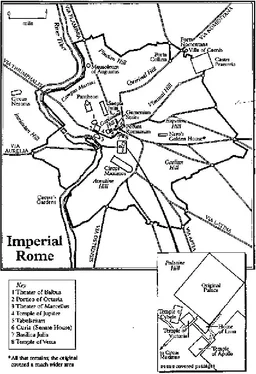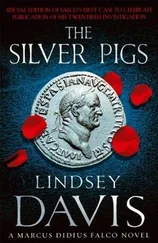Lindsey Davis - The course of Honor
Здесь есть возможность читать онлайн «Lindsey Davis - The course of Honor» весь текст электронной книги совершенно бесплатно (целиком полную версию без сокращений). В некоторых случаях можно слушать аудио, скачать через торрент в формате fb2 и присутствует краткое содержание. Жанр: История, на английском языке. Описание произведения, (предисловие) а так же отзывы посетителей доступны на портале библиотеки ЛибКат.
- Название:The course of Honor
- Автор:
- Жанр:
- Год:неизвестен
- ISBN:нет данных
- Рейтинг книги:5 / 5. Голосов: 1
-
Избранное:Добавить в избранное
- Отзывы:
-
Ваша оценка:
- 100
- 1
- 2
- 3
- 4
- 5
The course of Honor: краткое содержание, описание и аннотация
Предлагаем к чтению аннотацию, описание, краткое содержание или предисловие (зависит от того, что написал сам автор книги «The course of Honor»). Если вы не нашли необходимую информацию о книге — напишите в комментариях, мы постараемся отыскать её.
The course of Honor — читать онлайн бесплатно полную книгу (весь текст) целиком
Ниже представлен текст книги, разбитый по страницам. Система сохранения места последней прочитанной страницы, позволяет с удобством читать онлайн бесплатно книгу «The course of Honor», без необходимости каждый раз заново искать на чём Вы остановились. Поставьте закладку, и сможете в любой момент перейти на страницу, на которой закончили чтение.
Интервал:
Закладка:
Not so the bubbling Julia. "Tell me the story of the Year of the Four Emperors!"
"No; no; old history, child."
"Oh, it's exciting; tell me!"
"Well . . . all right. I remember," Aglaus began, "the Year of the Four Emperors. I remember it for two reasons. One was that it never stopped being exciting. Also, it was that year my lady gave me my freedom. It seemed to me then that something had gone wrong. She had already told me she had put it in her will. So I imagined she must have fallen ill; some secret woman's business that she didn't want to mention—she was at that age; I kept an eye on her. The way she looked, I really saw myself having to supervise the nurse and bury her. . . . So a freedman! I felt wonderful and terrible all at once."
"Go on; go on! Come to the year!"
"What a year! ‘The Year of the Four Emperors.' Sounds quite organized. One after the other, nose to tail like elephants. No such luck. Utter confusion. Listen: Nero eventually topped himself in June that year before—"
"Do his eyes!"
Aglaus altered his voice to a thrill of horror: "When the centurion rushed into Phaon's villa trying to capture him alive, Nero finally found courage to stab himself, crying, ‘What an artist perishes here!' He died with his eyes glazed, and boggling out of their sockets, so that everyone present was horrified!"
Julia screamed happily. In his everyday voice Aglaus commented, "So! Nero's last song; enter Galba. So old he's frightened he'll drop dead from sheer excitement; hastily names Calpurnius Piso as his successor. Five days later, young Piso murdered; old Galba murdered; enter Otho. Otho is the poor dunce who had been married to Poppaea to cover up Nero's adultery, then packed off for ten years to govern Lusitania while Nero married her anyway; Lusitania is all right if you're very fond of sardines! Otho lasts from January to April. Next, Vitellius decides the legions in Germany need to stretch their legs. They start marching to Rome. We're off: civil war. Otho's nerve seems to crack. Keeps sending for his hairdresser to take his mind off things. Nice thatch; not much under it."
Julia was giggling. Otho's thatch was a joke: it had been a clever wig.
"Vitellius smashes Otho's legions at Bedriacum. Otho decently does himself in; enter Vitellius ."
This was Aulus Vitellius, one of the sons of Lucius Vitellius, who had once been a client of Antonia, the close friend and long-term supporter of Claudius, and once patron to Vespasian. But Aulus the son had other loyalties—primarily to himself.
"The German legions storm into Rome. Rome thinks it best to welcome them; they have a serious reputation. Vitellius puts up with it from April to December—not bad for a loose type so drunk he can barely keep upright on the throne. And devious as they come. Your great-uncle Sabinus would be alive today if that bastard Vitellius had accepted the thumbs-down on 1 July. So what now? The legions in Moesia— Where the hell is Moesia? we all wonder, except Sabinus, who once lived there—decide it's their turn to pick a Caesar. They beat up Vitellius' messengers, rip their flags, steal their money, then stick a pin in a list to decide whose name to attach under their silver eagles next. And who does Moesia choose? We know, Julia, don't we?"
Julia giggled hysterically.
* * *
Caenis had known as early as March. She anticipated what would happen, exactly as Titus did. In many ways it was Titus himself who decided events.
They had been expecting Titus home; he was supposed to be coming to intercede with Galba about his father's still unconfirmed command. He never arrived. Caenis stood in the room that servants had opened and aired for him, with his letter in her hand, telling her so guardedly that he had decided not to come. Always polite, still he gave her no reason. She sensed it was one he could not yet formulate. She bent to smooth the coverlet on his newly made bed, while mentally she canceled preparations and plans. As she listened to the silence, she realized that this was not simply a matter of disappointing the butcher and the fishmonger, of removing a pot of scillas from his window ledge and piling his pillows back into the blanket chest. A chill caught her, as she dreaded that because of what he was doing now Titus might never again be able to return to Rome.
He had actually sailed for home; that made it worse. His letter was written from Greece. When Galba had still not forwarded instructions to Judaea by March, with the campaign season at hand Vespasian had sent Titus back to Rome, to bend the knee in homage and ask formally for a new commission, releasing the Flavians to be up and at Jerusalem as they wanted. That was all they wanted, whatever foolish rumors flew about it in Rome afterward.
In fact by the time Titus put to sea, Galba was already two months dead. There had been trouble with the army, because he had promised them a bounty, which it soon became clear he did not intend to pay. Detachments of soldiers, particularly those in Upper Germany, who originally helped quell the Vindex rebellion, refused to take the New Year's Day oath of allegiance to a mean-handed Spanish appointee, and asked the Praetorian Guards to nominate another emperor who would be acceptable to all. Galba's adoption of Piso was intended to reassure them. Instead it antagonized Otho, who had been Galba's most significant supporter and who was not unnaturally expecting the privilege of imperial adoption himself. Hence Otho's bid. Hence Galba's murder. Hence young Titus Flavius Vespasianus, now abruptly yachting on a strange new tack in the eastern Mediterranean.
Titus had reached Greece when he met messengers bringing news of Galba's death. He should have continued his journey to salute Otho instead. His companion, King Agrippa, did indeed go on to Rome. Titus turned back alone. He visited Paphos. There stood a prophetic oracle, which he consulted at length. He spent a long time on his own, lost in thought. Then quite suddenly he sailed back to his father.
Nothing was said. But from that moment Caenis knew what was happening. Aglaus, who had been with her for nearly twenty years, saw the change in her face. It was, as he told Julia, enough to make him believe his mistress might be terminally ill.
There are two ways at least of being brave. In a sudden emergency, when the adrenaline floods, people act with courage because they have no time or no imagination to appreciate how much danger they are in. To have courage in a sudden crisis is comparatively easy. There are obvious and positive things to do. But to remain brave over a long period is a very different matter. To wait and to watch, for month after month, while inevitable tragedy stalks closer, that is the test. That exacts courage of a deliberate, self-wounding kind.
Life was hard. Caenis had always known it. Some people endure that certainty all their lives. If ever they dare think otherwise, life restores their bitter understanding soon enough. Like her steward, Caenis would remember the Year of the Four Emperors. She would remember, because it would be when her shared life with Flavius Vespasianus had to come to a swift, unplanned end.
She was not ill. Her freedman worked that out eventually. Some time at the beginning of that summer it struck Aglaus that the lifeless look on his lady's face was one that of course he recognized: It was the classic expression of an old, exhausted, badly beaten, dismally broken-down slave.
THIRTY-EIGHT
Once Titus had sailed back to Syria there was never any question what he wanted his father to do.
He himself began working toward it immediately. Titus could always attract the friendship of the most unlikely men, so with adept diplomacy he persuaded Licinius Mucianus, the Syrian Governor, who was one of several statesmen who might himself have joined in the free-for-all, to set aside any jealousy he had felt toward Vespasian and abandon his own possible claim for power. The two provincial governors had previously loathed one another with cordial contempt; Titus brought them together. Mucianus joined Titus in urging Vespasian to act.
Читать дальшеИнтервал:
Закладка:
Похожие книги на «The course of Honor»
Представляем Вашему вниманию похожие книги на «The course of Honor» списком для выбора. Мы отобрали схожую по названию и смыслу литературу в надежде предоставить читателям больше вариантов отыскать новые, интересные, ещё непрочитанные произведения.
Обсуждение, отзывы о книге «The course of Honor» и просто собственные мнения читателей. Оставьте ваши комментарии, напишите, что Вы думаете о произведении, его смысле или главных героях. Укажите что конкретно понравилось, а что нет, и почему Вы так считаете.












